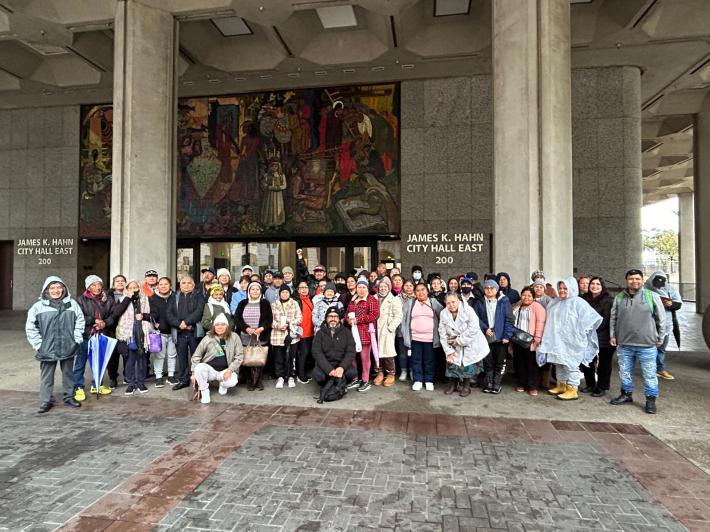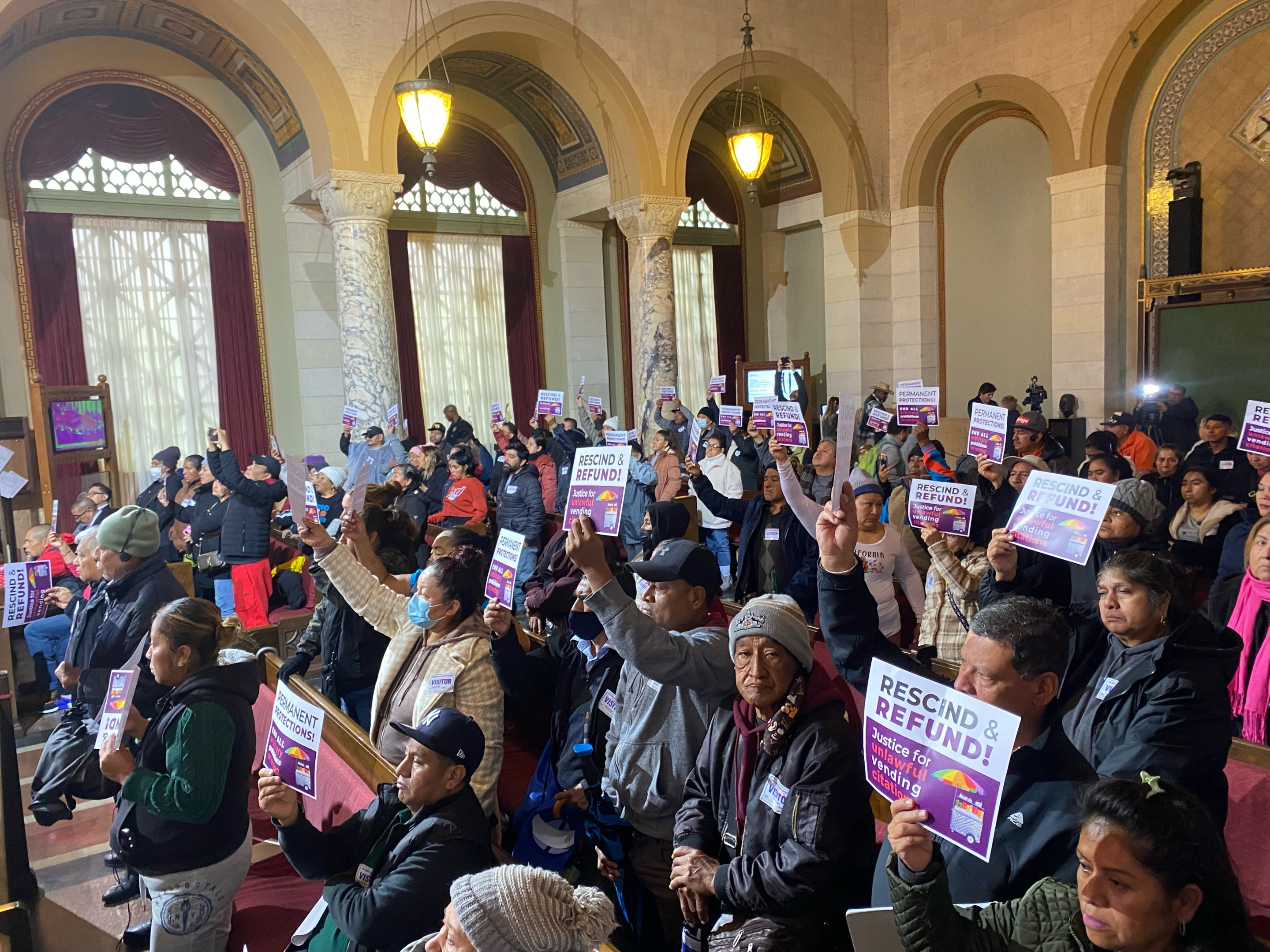Over 100 street vendors are celebrating the passage of a new ordinance that seeks to eliminate "no street vending" zones in Los Angeles.
The news comes after an early morning city council meeting today in which the ordinance was presented and voted on. In a unanimous 15-0 vote, the Los Angeles City Council approved an amendment to the City’s Sidewalk Vending Ordinance that removes the prohibition on vending in eight of the most popular tourist areas in the city.
These include the Hollywood Walk of Fame, Hollywood Bowl, L.A. Live/Crypto.com Arena, Universal Studios/City Walk, El Pueblo De Los Angeles Historical Monument, Exposition Park, and Dodger Stadium.
“This is a tradition that goes back many generations in our city and is the tree point for many to enter commerce and entrepreneurship and to be able to raise their families with the income they derive from street vending,” said L.A.City Council President, Paul Krekorian before opening the item for a vote.
Krekorian recognized council member Hugo Soto Martinez, who originally introduced the motion to remove “no street vending zones” in 2023, along with other council members. The president said he understood how personal this topic was for the council member, whose parents were street vendors. Krekorian shared that his grandfather was also a street vendor who sold melons on Sunset Boulevard when he first migrated to this country.
Organizations like Inclusive Action for the City, Community Power Collective, East L.A. Community Corporation, and others, along with street vendors from across L.A., have long fought for the elimination of no-vending zones.
They believe today’s vote is a result of years of advocacy and a direct result of a lawsuit that was filed against the city by street vendors in December of 2022, which sought to end the city's unlawful and discriminatory no-vending zones.
“Throughout the lawsuit and in the five years since the adoption of the city’s sidewalk vending ordinance, the city has ignored or outright rejected invitations to discuss thoughtful proposals from street vendors that balance economic inclusion and public safety in Hollywood and elsewhere,” stated the organizations working with the street vendors who are part of the lawsuit.
Although the ordinance is significant and necessary, advocates and vendors both fear that there is no assurance that the “no vending zones” won’t be replaced with new prohibitions. According to Dough Smith, the senior director of Policy at Inclusive Action, the lawsuit will move forward.
The trial is set to start on February 15. Smith claims that the long-term effects on vendors, who have faced policing and exponential debt due to citations, have yet to be addressed.
“Nothing has been proposed by the city to address the harms that are caused by years of enforcing the unlawful bans, and so we’re asking the city to refund past citations, now that they recognize those bans as unlawful regulations,” said Smith over the phone.

In Los Angeles, there are essentially two sets of laws that impose regulations on street vendor communities, one is the city’s regulations on where a vendor can work.
“This ordinance changes those rules and allows vendors to work in these areas that were considered no vending zones,” clarified Smith.
For food vendors, there is a different set of rules imposed on them by the county health code, which is regulated by the Department of Public Health. The county health code focuses less on where you can work and more on the equipment used and the preparation of food.
The ordinance voted on today does not affect this county health code, meaning vendors in these new zones can still be regulated by the health department for not having proper equipment and permits.
However, a victory is a victory and vendors will celebrate these multiple wins this week. In addition to taking one step closer to eliminating no vending zones, two other initiatives have moved forward: One is an ordinance that creates a legal vending system for unincorporated Los Angeles, including East L.A. and South Central.
“There’s a lot of vending that occurs in these areas and until now there had been no opportunity for vendors to get a permit and formalize their business,” explained Smith. “This ordinance establishes some restrictions on where vendors can set up but also creates an opportunity for them to get permits.”
The other is an initiative to try and identify additional funding to help subsidize the health department fees and permit fees overall. Today, the yearly fee went from $291 to $27.51 for the Sidewalk and Park Vending Program.
For now, vendors are feeling triumphant as they prepare for their lawsuit trial to begin next week. The ordinance voted on today still requires a second vote by the full City Council before it can be adopted and Mayor Karen Bass is required to approve the ordinance for its implementation, as well.
“This ordinance marks a very significant shift in the city's approach to sidewalk vending, and it's a tremendous victory for vendors and it's a direct result of the lawsuit, and all the advocacy that was led by street vendors," said Smith.







